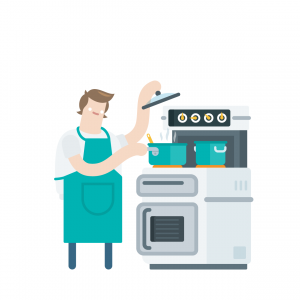How to assess the suitability of rented property – questions to ask & things to note…

Availability
How long has the property been on the market?
If it has been on a while (say 10 weeks or so) at a decent price, always ask why. It could just be market conditions but might indicate there’s some problem with the property (e.g. perhaps one of the bedrooms is tiny).
Get an overview of similar properties online, call the agent and ask why it hasn’t been let/sold – It’s always worth asking the question, and might give you some leeway to negotiate on rent (or selling price)!
Length of tenancy
When is the property available?
How long is the tenancy?
Do you require a break clause? This can be agreed at 6 months. Some landlords will want a minimum tenancy of 12 months, but this is an aspect of your contract that is up for negotiation.
What happens afterwards? If you want the option to renew your tenancy, this should be addressed at the point of offer.
Find out more:
Costs
 Rent
Rent
How much is the rent?
What bills, if any, are included?
Council tax
Which band is the property in?
How much tax is charged?
Security deposit
How much security deposit is required? (In England, new rules set a cap of 5 weeks’ rent, or 6 weeks’ if annual rent is £50,000 or more.)
Will the deposit be protected in a Tenancy Deposit Protection scheme?
Tenant fees & charges
Landlords and letting agents in England and Scotland are not allowed to charge tenancy fees (click here for the only permissible charges).
However, fees are currently still legal in Northern Ireland and Wales, so ask what charges will apply. All costs should be made clear to you upfront.
Energy efficiency rating
Ask to see the Energy Performance Certificate (EPC), which gives an energy efficiency rating for the property, and a broad indication of how expensive it will be to run in terms of energy bills.
Find out more:
Amenities & Facilities
Number of rooms
How many bedrooms are there to rent?
Check the sizes – if one of the bedrooms is really tiny, that might not be suitable.
Facilities
Are there sufficient toilet/bathroom/kitchen facilities for the intended number of tenants?
Is there adequate heating and what sort?
Are there plenty of electric sockets, TV points etc.?

What contents/furnishings are included?
White goods (appliances) form part of the fixtures and fittings and should be included, even if the accommodation is rented unfurnished. They should all be provided in good condition and full working order – this should be stated in your contract.
Are furnishings in decent condition? If not, negotiate repairs/replacements before you sign, because it will be difficult to get things changed once you have moved in.
Curtains do not have to be provided. If there are none and you do require them, request that they are included as part of your offer.
General condition
Does the property appear to be well maintained?
Check the exterior for missing roof tiles, leaking pipes and gutters etc.
Inside, see if there are there any signs of damp, draught, loose wires, flaking paint etc.
If you do notice problems, get agreement that they will be addressed before you move in, and have this written into your contract.
Professional cleaning
Request that the property is professionally cleaned before you move in and ask for the receipt. This can affect your deposit, because you will be expected to vacate it in the same condition.
Garden
If there is a garden, check who is responsible for its upkeep. Since tenancy fees were banned (England & Scotland), tenants cannot be charged for 3rd party services such as gardening, unless it is included within the rent.
Communal areas for flats
Check who is responsible for cleaning and maintaining any shared areas e.g. entrance hall or stairs.
Service charges and most repairs to communal facilities are normally the responsibility of the landlord.
Broadband/telephone
The landlord/agency doesn’t tend to get involved in this, as tenants normally set up their own contracts for phone/broadband. (You could ask what arrangements the previous tenants had).
There should be at least one functioning telephone line in the property.
Safety
Security
This is important primarily for your own peace of mind, but also because it affects contents insurance:
How secure does the property feel? Does it have an alarm? What sort of locking system? Are the windows double-glazed and are there window locks on the ground floor? Are there locks on individual bedroom doors?
What is next to the building? If it’s public land or a footpath, how well protected is the property?
Crime rate – Ask if the place has ever been burgled or damaged. You can also check the crime statistics for the specific postcode.
Safety certificates
Gas
Ask to see the Gas Safety Certificate, which is a record of safety for all gas appliances. (The landlord must arrange an annual gas safety check by a “Gas Safe” engineer). It is a legal requirement for a landlord to have this certificate and you should not move into a property without one.
Electrics
Not yet a legal requirement, but landlords may provide records of any electrical inspections, including Portable Appliance Testing (PAT) certificates which are valid for 5 years. Anything that plugs into the wall should have a PAT certificate e.g. appliances, lamps etc.
For shared accommodation classified as a House in Multiple Occupation (HMO), the landlord will need an HMO Licence, and additional safety standards and regulations will apply.
Fire safety
Smoke Alarms, Carbon Monoxide Alarms, Fire Blanket
Recent legislation requires landlords to install working smoke alarms on each floor, and carbon monoxide alarms in any high-risk rooms, such as bedrooms with a gas appliance (e.g. boiler in a cupboard).
Ideally, smoke alarms should be powered by the main electrics (i.e. not just battery powered).
Find out more:
Landlord’s Safety Responsibilities: Gas, Electrics, Fire – GOV.UK
Chimneys
For fire safety reasons, all chimneys should be swept before you move in; ask for the receipt.
Boiler
When was the boiler last serviced?
The cost and organisation is the landlord’s responsibility, but the tenants will need to allow access for servicing and repairs.
Special Clauses – Smoking, Pets & Others

Almost all contracts forbid smoking.
You might be allowed to have pets, but this must be agreed with the landlord and a clause included in the contract.
Check if there are any other special clauses that the landlord may have imposed e.g. no wearing high heels, where they might mark wooden floors.
TIP
A draft contract should always be provided for you to review special conditions e.g. pets and smoking.
If not, ask for one!
Click here to download our printable checklist of questions to ask and things to check at property viewings.
